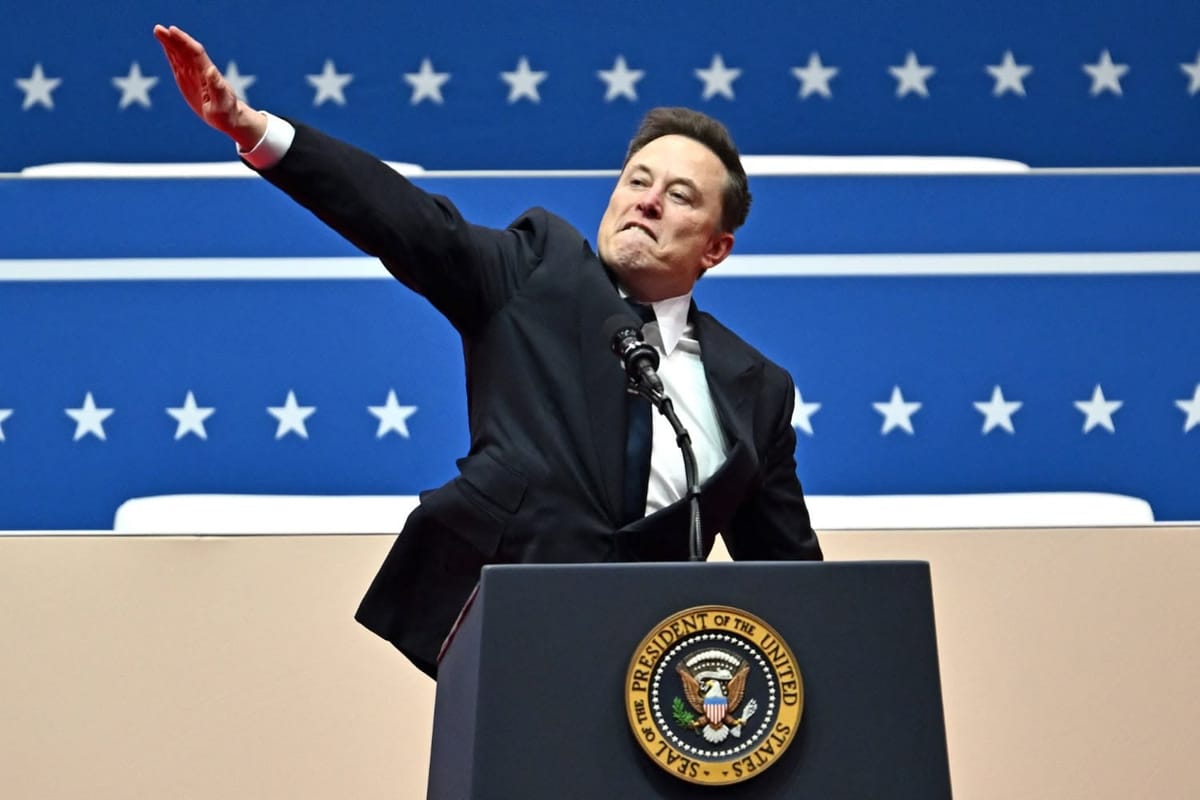Fascism's Lingering Shadows: Why History’s Warning Signs Matter Now

Fascism has a peculiar way of haunting our collective consciousness. For some, it’s an overused political insult; for others, it’s a chilling reminder of how quickly democracy can crumble under the weight of authoritarian ambition. And now, with Donald Trump back in the White House, the question looms larger than ever: could fascism truly take root in the United States?
Let’s be honest—Trump’s second term already looks vastly different from his first. He has tightened his grip on the Republican Party, purging dissenters and surrounding himself with loyalists, sycophants, and enablers. His new vice president, J.D. Vance, is no Mike Pence. Pence, for all his faults, had the fortitude to defy Trump when it mattered most, refusing to overturn the 2020 election results. Vance, by contrast, is a man with ambition, willing to stay in Trump’s good graces at all costs.
And yet, Trump’s return isn’t just about consolidating power within his party—it’s about how he’s managed to strengthen his appeal with the American public. Despite four indictments, a conviction, and an insurrection under his belt, Trump has only grown more popular. He finally won the popular vote, negating a key Democratic talking point that had once undermined his legitimacy. By hammering Joe Biden on inflation, immigration, and trade, Trump tapped into the public’s discontent with remarkable precision.
This political resurrection is as much about Trump’s instincts as it is about his luck. Americans were exhausted by Biden’s inability to effectively communicate his successes, such as economic nationalism and infrastructure investment. Trump, ever the showman, capitalized on this vacuum with his trademark charisma and ability to channel voter frustrations.
The Specter of Fascism: Is America at Risk?
With Trump’s return, fears of fascism have escalated. The images of Elon Musk performing a Nazi salute at Trump’s inauguration event helped solidify things. As did Trump’s rhetoric, which has veered into dangerous territory, targeting minority groups and embracing nationalist fervor. To many, this feels like a page ripped straight from the authoritarian playbook.
But here’s where the conversation gets complicated. The United States, sprawling and unwieldy, doesn’t fit neatly into the mold of European fascism. America’s size, diversity, and decentralized governance make it inherently resistant to strongman rule. While fascists thrive on centralization—seizing control of education, local governments, and even thought itself—the U.S. operates more like a chaotic patchwork of states, counties, and townships.
Take public education, for example. In a truly fascist regime, schools would be a primary tool for indoctrination. Yet in America, there are nearly 14,000 separate public school districts governed by over 94,000 elected school board members. Even the most zealous MAGA disciple would struggle to impose a unified, far-right curriculum across this Hapsburgian mess. And that’s just one example of the nation’s decentralized chaos.
Similarly, much of America’s lawmaking happens at the state and local levels. Governors and state legislatures wield immense power, often operating independently of the federal government. Trump can certainly make life harder for Democratic states like California and New York by slashing federal funding or vetoing infrastructure projects. But even at his most uninhibited, he lacks the managerial competence and focus to fundamentally remake the system.
The Limits of Trump’s Power
For all the talk of Trump’s authoritarian impulses, there are guardrails in place—even now. Congress, which the Republicans only narrowly control, won’t be rubber-stamping his every whim. The judiciary, while increasingly conservative, still operates with some degree of independence. And then there’s Trump himself: a man whose attention span is better suited to late-night Twitter (or X) rants than long-term policymaking.
This isn’t to say Trump’s second term won’t be dangerous. His influence over the GOP is near-total, and his willingness to pardon January 6th insurrectionists sends a chilling message about his tolerance for political violence. But America is not Weimar Germany. It’s a two-century-old republic with institutions that, while battered, have repeatedly proven their resilience.
Consider the 2020 election. Despite Trump’s relentless efforts to overturn the results, the system held. Election officials, many of them Republicans, refused to bow to his pressure. Courts dismissed baseless lawsuits. And when it came time to certify the results, Congress—shaken but resolute—did its job. The United States has weathered moments of extreme political and social stress before, and it’s reasonable to believe it can do so again.
The Role of Media and Complacency
One of the greatest threats to democracy isn’t just authoritarianism—it’s normalization. The media plays a critical role here. During Trump’s first term, there was a tendency to treat his most outrageous actions as political theater rather than existential threats. Headlines framed his dangerous rhetoric as quirky or unconventional, diluting the gravity of his behavior.
This cannot happen again. Media outlets must provide context and connect the dots. When Trump engages with far-right conspiracy theories or uses nationalist dog whistles, it’s not enough to report the facts—journalists need to explain why it matters.
But the responsibility doesn’t stop with the media. As individuals, we must remain vigilant. Democracy isn’t self-sustaining. It requires active participation, critical thinking, and a refusal to accept the normalization of authoritarian rhetoric and policies.
The Resilience of Democracy
For all its absurdities and contradictions, American democracy is built on a foundation of resilience. It has survived civil war, economic collapse, and moments of near-total political dysfunction. Unlike the fragile Weimar Republic, the U.S. has the institutional depth and societal complexity to withstand the pressures of authoritarianism.
That said, resilience doesn’t mean invincibility. The 21st century presents unique challenges, from social media’s role in spreading disinformation to the erosion of public trust in institutions. While Trump alone may not be able to “break” the system, his actions—and the normalization of them—can erode it over time.
Fascism isn’t just a relic of the past—it’s a persistent energy that preys on complacency. The antidote is vigilance, both from our institutions and from us as citizens. History doesn’t repeat itself, but it certainly rhymes. Let’s make sure we’re not singing along.





